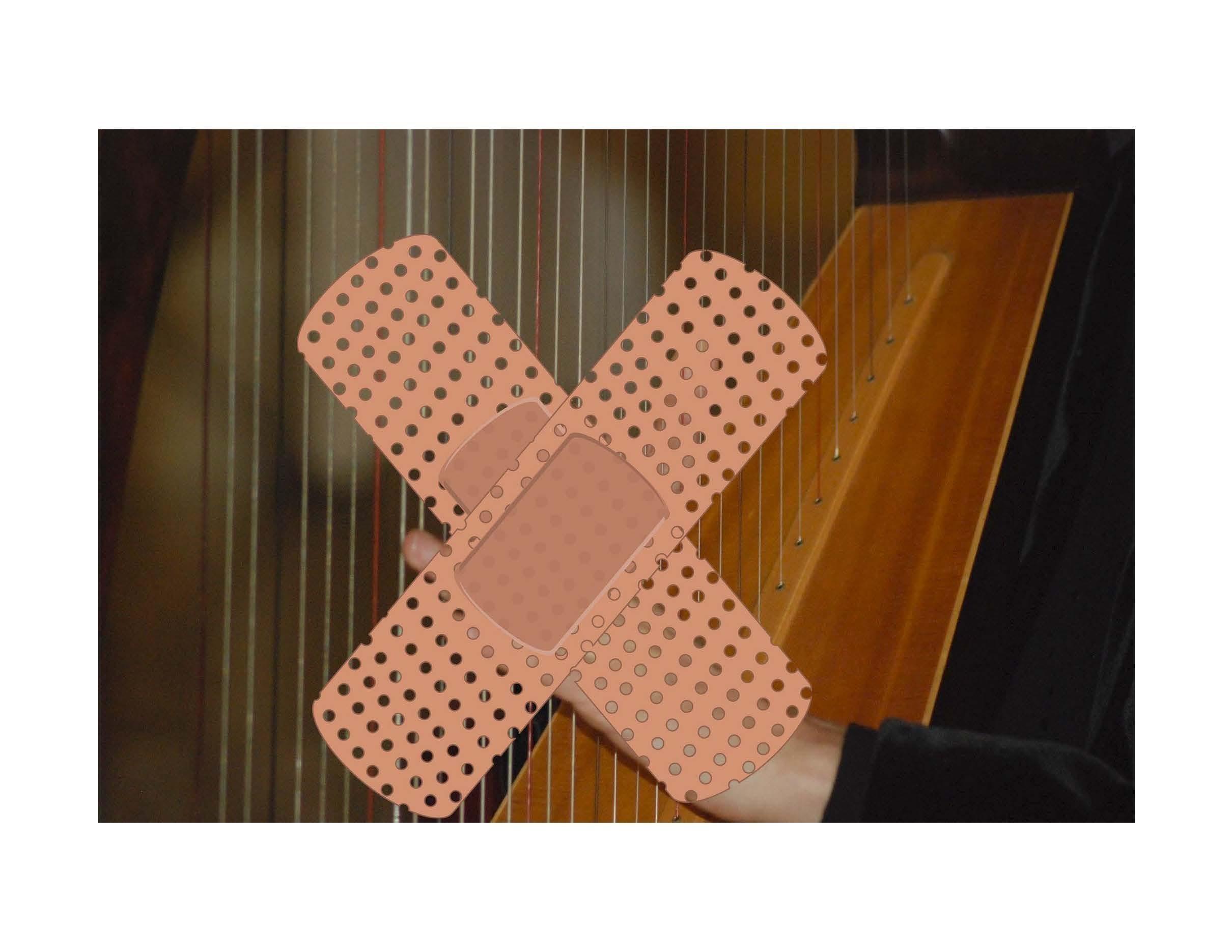If you’ve been reading my blog for more than about 15 minutes then you know that injury prevention is important to me. If it hasn’t been 15 minutes yet or you don’t remember seeing these posts check out this post, this one, and this too.
Injuries aren’t fun. After all, they hurt! But more importantly they can take you away from playing. It’s difficult to sit on a hard bench when your back aches or is “thrown out”. Having a crick in your neck can turn into a headache while sight reading. Overuse “ouchies” in your hands can curtail your practice so that you don’t spend as much time at the harp as you planned/would like to/need to. And an injury that is untended or uncared for can lead to enforced time away while you recover.
Hopefully, you’ll take good care of yourself, and this post will be irrelevant for you forever. However, it is estimated that 70 – 80% of musicians have developed an overuse injury – which suggests that the odds are ever in your favor … to get hurt.
While that’s sobering (and a little disheartening) let’s move to the next question – if you’re injured and need to rest and recover – away from the harp – do you just slag off and wait?
No, of course not!
There are loads of things you can do to keep your recovery time useful and moving forward! Here are ten:
1. Read a book. Whether it’s Sanger and Kinnaird’s Tree of Strings, Rensch’s Harps and Harpists, or McCaffery’s The HarpMaster of Pern, you can stay connected to your instrument by reading a good book.
2. Read a score. We’ve talked before about sight reading practice – this is a perfect time. You could sightread by reading a note and then fixing your gaze on the appropriate string to be played, or you could point to the string as you read. You can also work on your sight singing (or hearing the music in your head).
3. Learn your intervals – do a little ear training. Find and identify particular intervals in music you already know. Go online to find ear training exercises. It does get easier – I promise.
4. Compose. You can do this in your head and sing what you come up with into your recorder. When you’re healed you can move your tune onto the harp.
5. Study your theory. Find a good theory book and work through it. Don’t skim – do the exercises!
6. Listen to music. Find new things to work on later, when you’re healed. It’ll give you something to look forward to.
7. Read all the posts in this blog! (No, really)
8. Go for a walk (or knit, or some other thing that’s sort of meditative and quiet) and sing your rep in your head to keep it in there.
9. Restring your harp (if it needs it). You might need practice changing strings and this will do it. At a minimum, it will build your confidence for quick string changes!
10. Have coffee with a harp friend to enjoy their growth, commiserate on your injury, and stay connected to your harp world.
If you’re not injured, celebrate – but take care too. Hopefully this assures you that, should you become injured you will be able to keep working. And it might give you some ideas if you find yourself there. Not every injury will require weeks to recover (for instance, I am quite good at cutting my index finger just before gigs). I’m sure there are loads of other things you could do while you heal. If you’re already hurt, which of these have you done/are you likely to try or do you have other ideas? Please share them in the comments!
